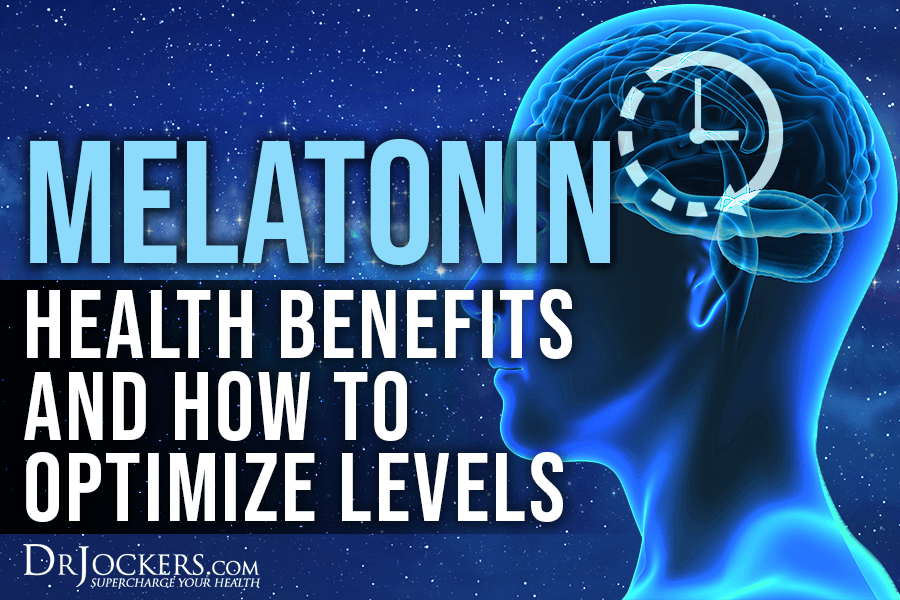 Melatonin: Health Benefits and How to Optimize Levels
Melatonin: Health Benefits and How to Optimize Levels
You’ve probably seen melatonin supplements at your local pharmacy. You might’ve even used it for better sleep. But do you know what melatonin is?
Melatonin is a natural hormone made by your pineal gland. Your body makes it as a response to darkness to support your circadian rhythms. Melatonin affects physical, behavioral, and mental changes throughout the day and night.
Melatonin affects your sleep-wake cycle and supports your sleep. It affects your body temperature, cortisol levels, blood pressure, mood, brain health, immune function, and sexual function. It also has been shown to reduce pain, inflammation, and the risk of diseases.
In this article, you will learn about melatonin. I will discuss what melatonin is. You will learn about the connection between melatonin and your circadian rhythm. I will explain how melatonin impacts your mitochondrial health. You will understand the potential health benefits of melatonin. I will discuss the importance of testing your melatonin levels and recommend a test for melatonin. Finally, I will share my top tips on how to optimize your melatonin levels naturally.
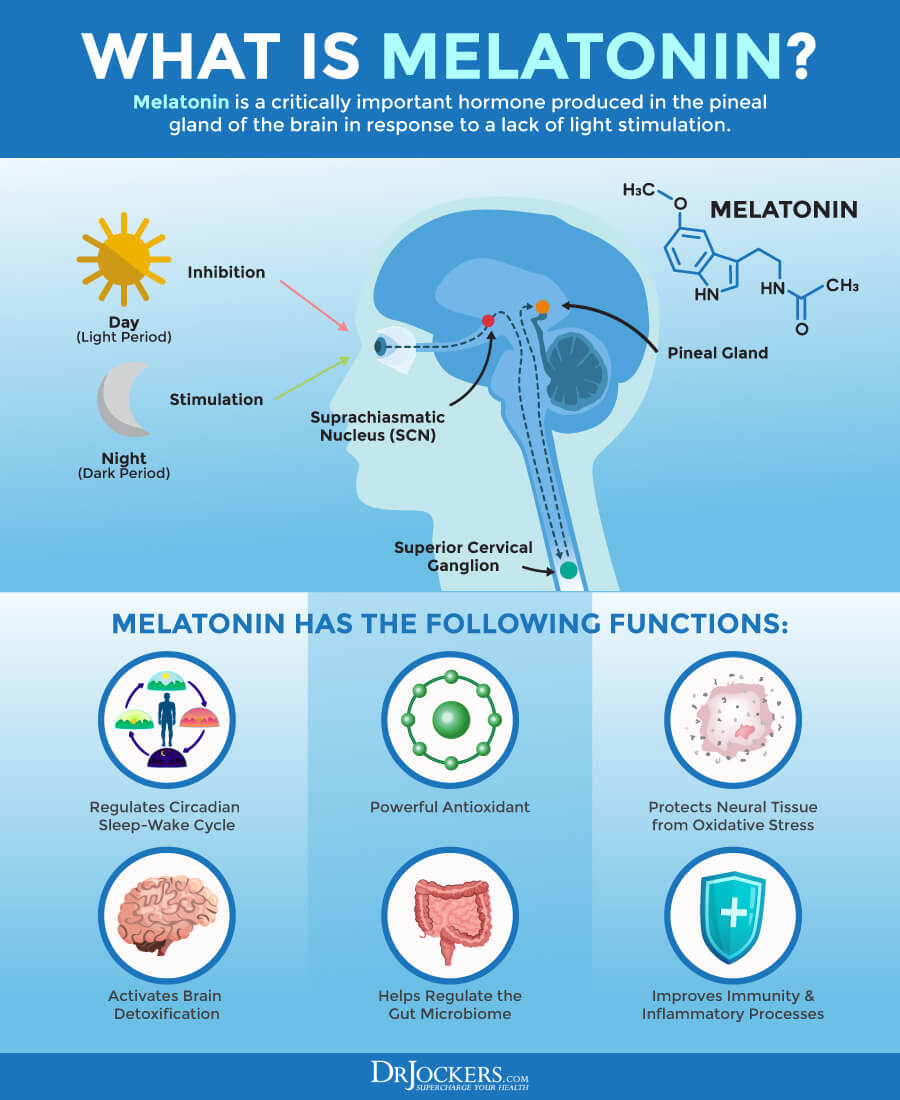
What is Melatonin
Melatonin is a natural hormone. It is mainly made by your pineal gland. Your pineal gland is a small gland inside your brain, and it’s part of your endocrine system. Your brain produces melatonin in response to darkness to support your circadian rhythm, your body’s internal 24-hour clock.
Melatonin affects physical, behavioral, and mental changes during each 24-hour cycle you go through in a day. Melatonin affects your body temperature, mood, brain health, cortisol levels, blood pressure, immune function, and sexual function as it changes throughout the day. It also affects your sleep-wake cycle and supports your sleep (1, 2).
Melatonin is critical for the activation of the glymphatic system which is how the brain removes metabolic waste. Poor melatonin production results in poor glymphatic function and poor brain drainage which leads to neuronal excitotoxicity that can cause mood disorders, poor cognition and neurodegeneration.
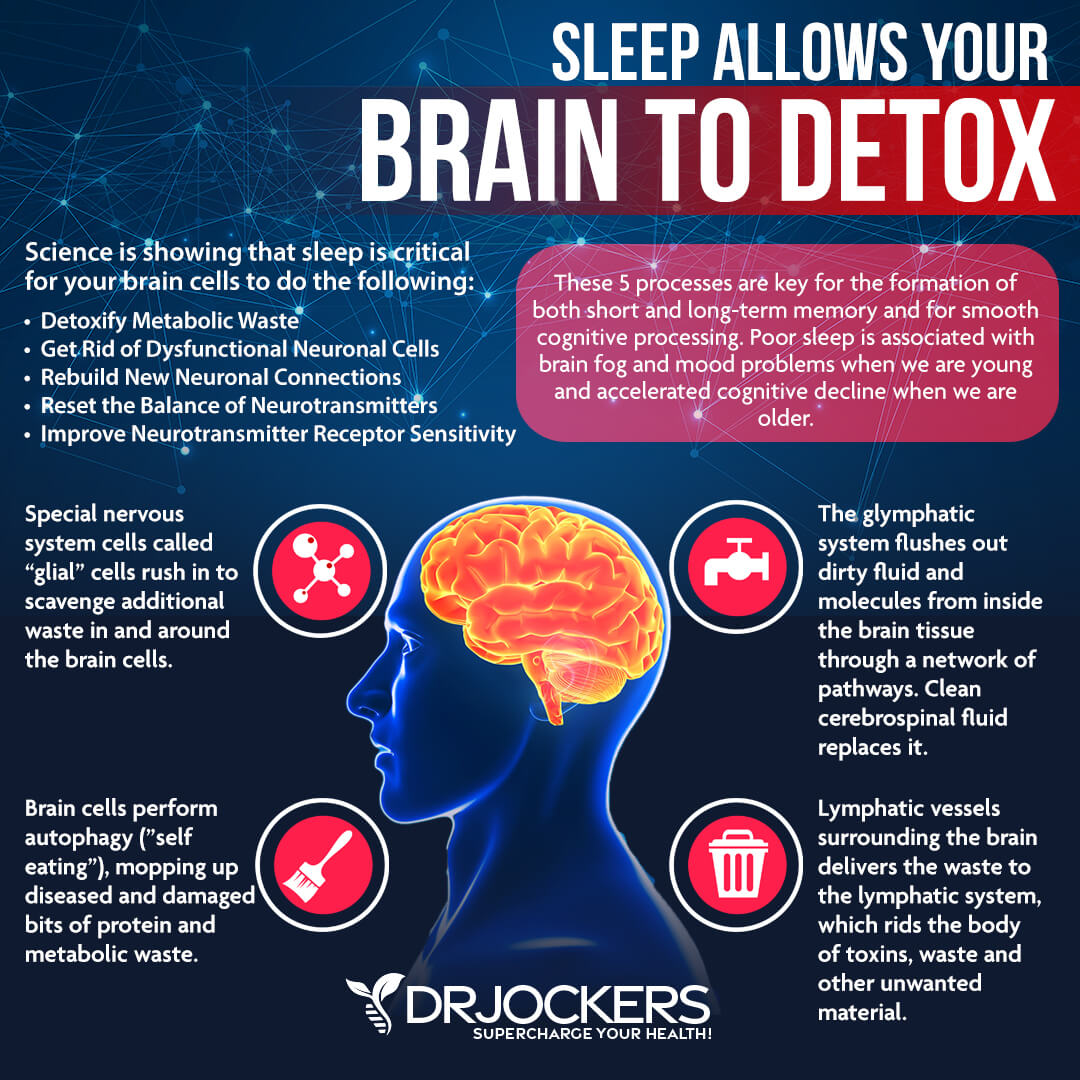
Melatonin and the Circadian Rhythm
Melatonin is also referred to as your ‘sleep hormone’ or the ‘hormone of darkness’ since it supports your sleep at night. Melatonin affects your sleep-wake cycle. At night melatonin supports your sleep at night. At night, in darkness, your body produces the highest amounts of melatonin, while during the day or light, it produces only minimal amounts.
When you are exposed to light at night, it can block melatonin production and interfere with your sleep. Too little melatonin can not only lead to sleep problems but may also increase fatigue, depression, and mental health issues (1, 2).
Melatonin supplements are commonly used as sleep aids. They are different from sleep aid medications. Instead of putting you to sleep forcefully, they simply support your body’s ability to support your natural circadian rhythm. Melatonin may help you to fall asleep faster, stay asleep, sleep longer, and get better sleep. It may be particularly effective while traveling to prevent jet lag. It may also be helpful for shift workers and those working with changing schedules (1, 2).
However, it’s important not to take too much melatonin. Too much melatonin may cause drowsiness, dizziness, headaches, and nausea. Later in this article, I will discuss how to optimize your melatonin levels naturally to avoid too little or too much melatonin and related health issues (2).
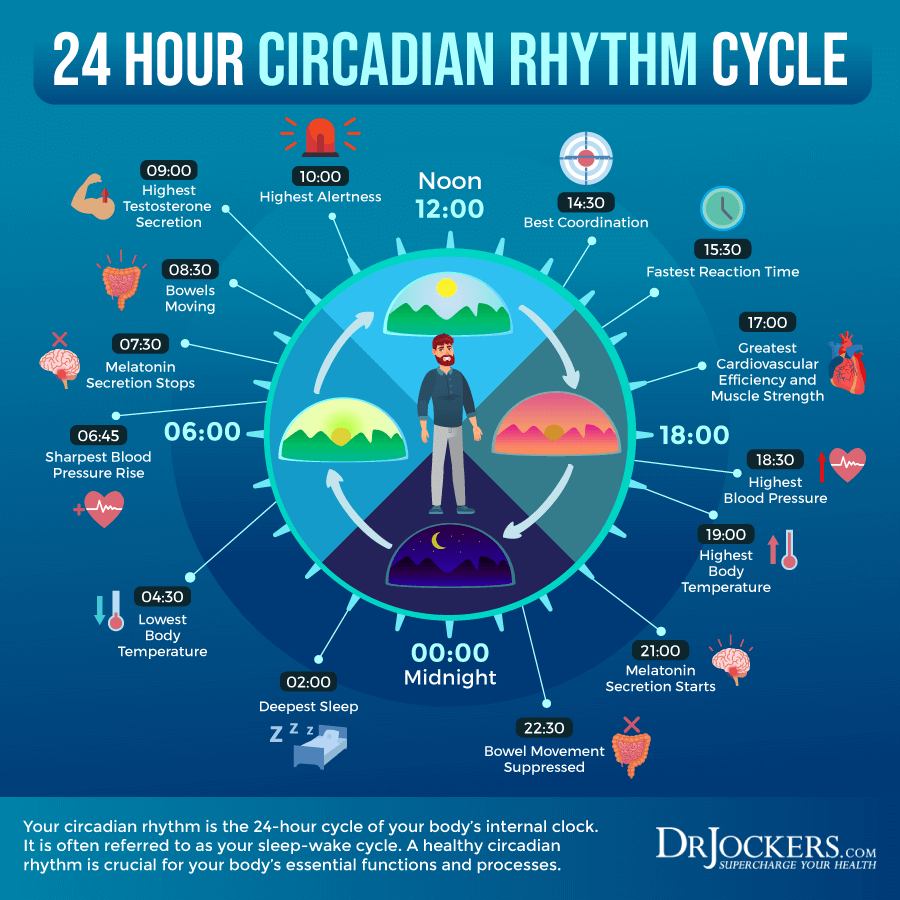
How Melatonin Impacts Mitochondrial Health
Your mitochondria are specialized structures that are found in every single cell of your body except your red blood cells. As you’ve learned in school, the mitochondria are the powerhouse of your cells. They are basically the batteries that power a variety of functions in your body. They are responsible for most of the cellular energy produced by your body.
Mitochondria are located in differing concentrations in various tissues throughout the body and are designed to serve the purpose of those specific tissues. For example, the mitochondria in your liver help to convert ammonia into a less toxic waste substance.
Melatonin plays an important role in your mitochondrial health. According to a 2020 review published in Physiology, melatonin production in the mitochondria may help to reduce oxidative stress and other health dangers (3). Optimal mitochondrial function is critical for cell survival and overall health.
Any issues can lead to mitochondrial disease. As the review explains, melatonin is a powerful antioxidant that can effectively fight oxidative stress, inflammation, and the risk of chronic disease. Thus, melatonin may help to reduce the risk of mitochondrial dysfunction and improve mitochondrial function.
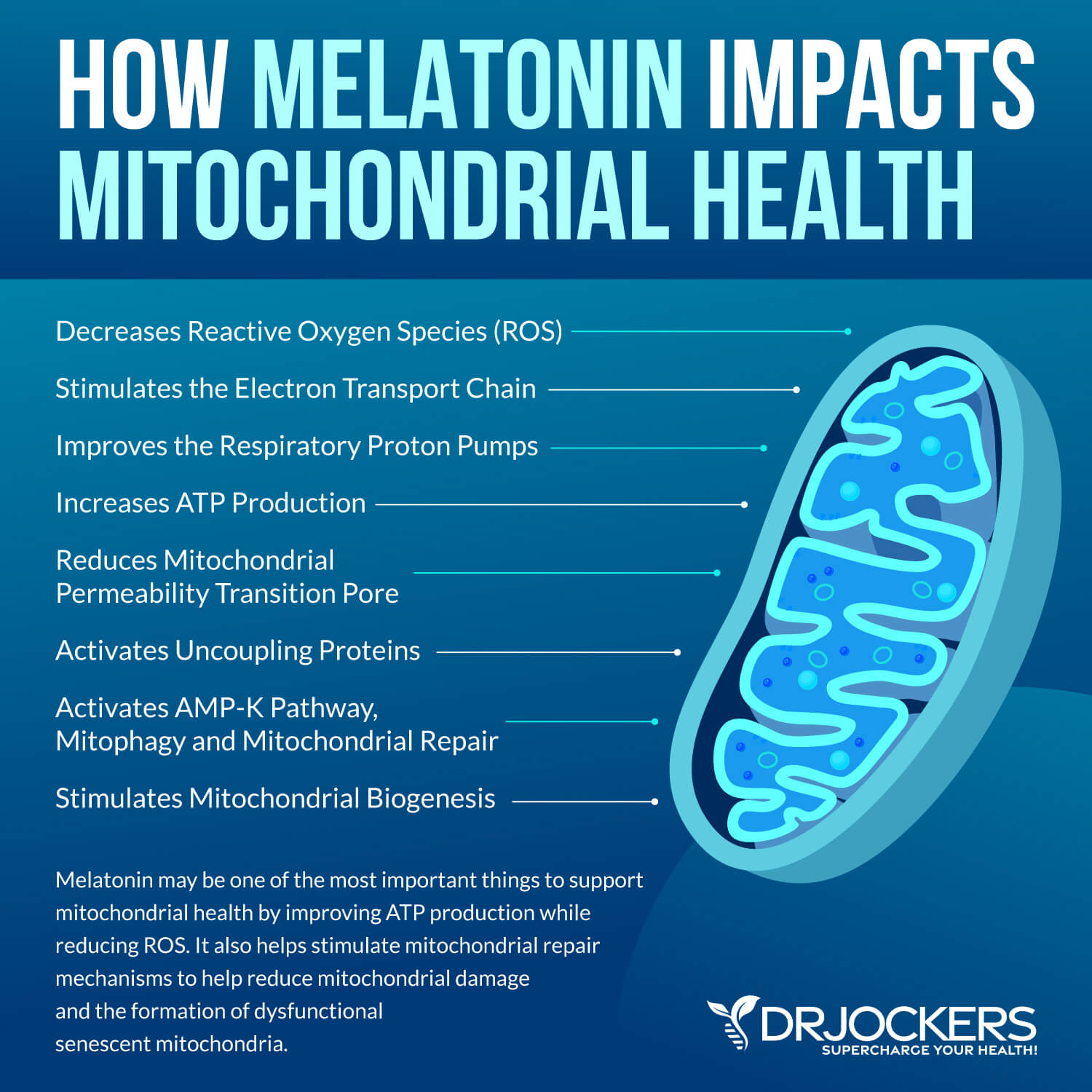
Melatonin and Mitochondrial Energy Production
According to the review, melatonin may help to improve the electron transport chain, support ATP energy production, and reduce mitochondrial reactive oxygen species (ROS) damage). Some research evidence suggests that your cells may synthesize melatonin in the mitochondria.
But beyond the mitochondrial synthesis of melatonin, research evidence suggests that melatonin can also move into your cells from your blood. This melatonin uptake is likely supported by a protein transporter, GLUT1. According to other studies, the human oligopeptide transporters, PEPT1/2 help the transportation of melatonin into your cells and mitochondria.
Though we need more research to completely understand this mechanism, one thing seems fairly certain. Melatonin can slip through the double membrane of your mitochondria, and your mitochondria can also synthesize some melatonin. This melatonin action provides functional advantages to your mitochondria and cells.
It may help to reduce free radical damage, oxidative stress, inflammation, cellular damage, and related disease. The authors of the review refer to melatonin as the ‘fox in the hen house’ describing how it can swiftly act on issues.
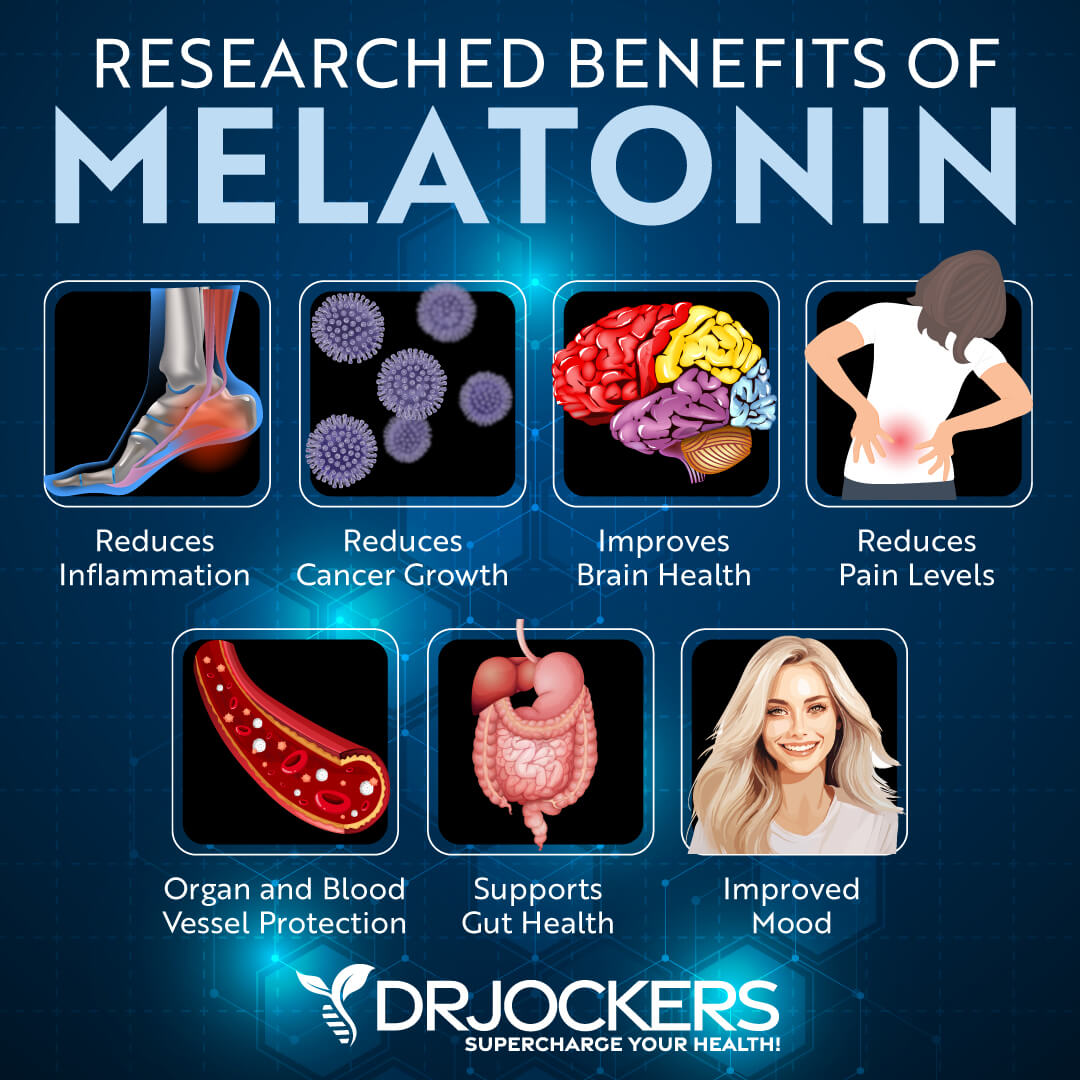
Benefits of Melatonin
Melatonin offers many health benefits. One benefit is, of course, supporting your sleep and circadian rhythm.
However, melatonin may also help to reduce inflammation, lower the risk of cancer, support brain health, decrease pain levels, protect your organs and blood vessels, support your gut health, and improve your mood. Let’s get into the potential health benefits of melatonin.
Reduces Inflammation
Chronic inflammation is the root cause of most modern-day diseases and chronic health issues. Melatonin may be able to help. According to a 2021 systematic review and meta-analysis published in Brain, Behavior, and Immunity, melatonin has anti-inflammatory benefits (4).
Researchers explained that melatonin has multiple roles and benefits. It may help to reduce free radicals and macromolecular damage in your organs from free radicals. It also offers antioxidant benefits.
Melatonin may help to protect your body on a genetic level by stopping the translocation of nuclear factor kappa B (NF-kB) to the nucleus and from binding to your DNA. This prevents inflammatory cytokine action. Melatonin may also help to downregulate the expression of 5-lipoxygenase, which also plays a role in inflammation. Overall, melatonin may help to reduce the inflammatory response and chronic inflammation in your body.
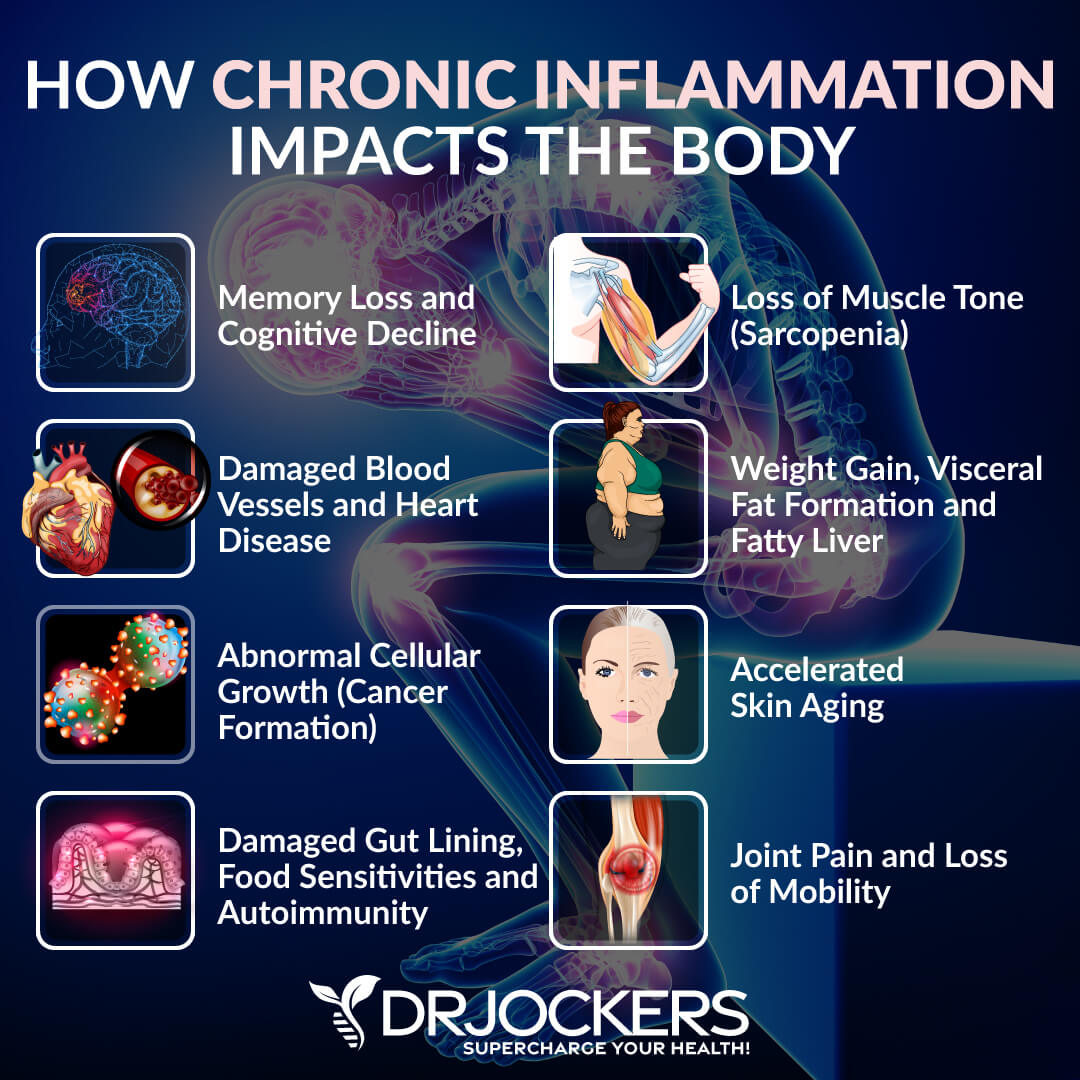
Anti-Cancer
Melatonin may also offer some anti-cancer benefits. Earlier in this article, I’ve discussed a 2020 review published in Physiology (3). According to this review, melatonin may help to improve mitochondrial energy production and mitochondrial health. The review also explained how melatonin might help to reduce the risk of cancer by playing a role in the Warburg effect.
The Warburg effect refers to an increase in the rate of glucose uptake and lactate production, even when oxygen is present. This happens in the presence of cancer. Unlike normal and healthy cells, cancer cells metabolize anaerobically instead of aerobically. Exposure to light at night can reduce melatonin production and increase Warburg-type metabolism even during the night, up to 24 hours around the clock, which can increase cancer activity.
However, supporting healthy melatonin production can help to reduce Warburg activity and cancer growth. Melatonin may also reduce oxidative stress, free radical damage, and chronic inflammation, which are all driving factors of cancer. According to the authors of this review, melatonin should be considered as a potential option for anti-cancer therapies.
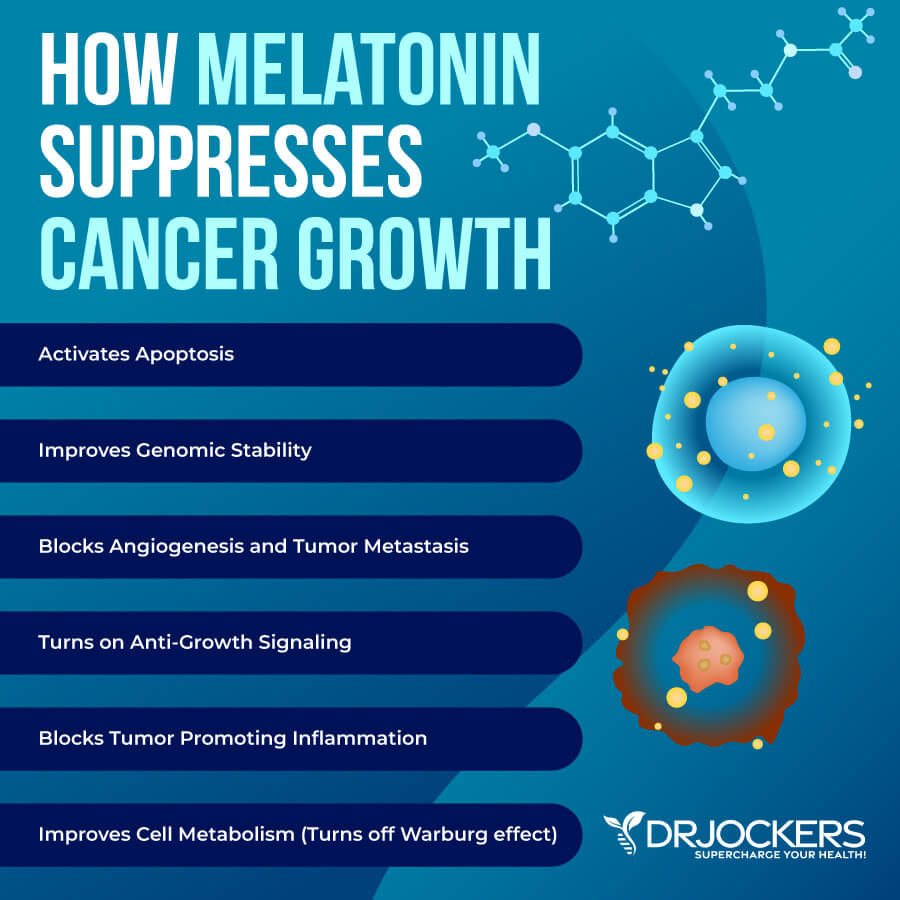
Improves Brain Health
Melatonin may also help to improve your brain health. According to a 2021 review published in Antioxidants (Basel), melatonin may help to reduce the risk of neurodegenerative disorders (5). Melatonin is a powerful antioxidant. It prevents the peroxidation of cardiolipin and other membrane lipids. It also helps protein trafficking, signaling, and ATP energy.
It affects condensate liquid-liquid phase separation (LLPS) and helps to balance the composition of mRNA and RNA-binding proteins through the regulation of N6-methyladenosine (m6A) changes. Thus, it seems that by regulating phase separation in the brain, melatonin may be a great target for neurodegenerative disorders.
2022 research published in Biochemical Pharmacology has also found that melatonin may help to improve cognitive function (6). This animal study has found that melatonin may help to reduce endoplasmic reticulum stress and improve synaptic plasticity. This suggests that melatonin may be beneficial for neurodegenerative disorders and cognitive dysfunction. Research gate image
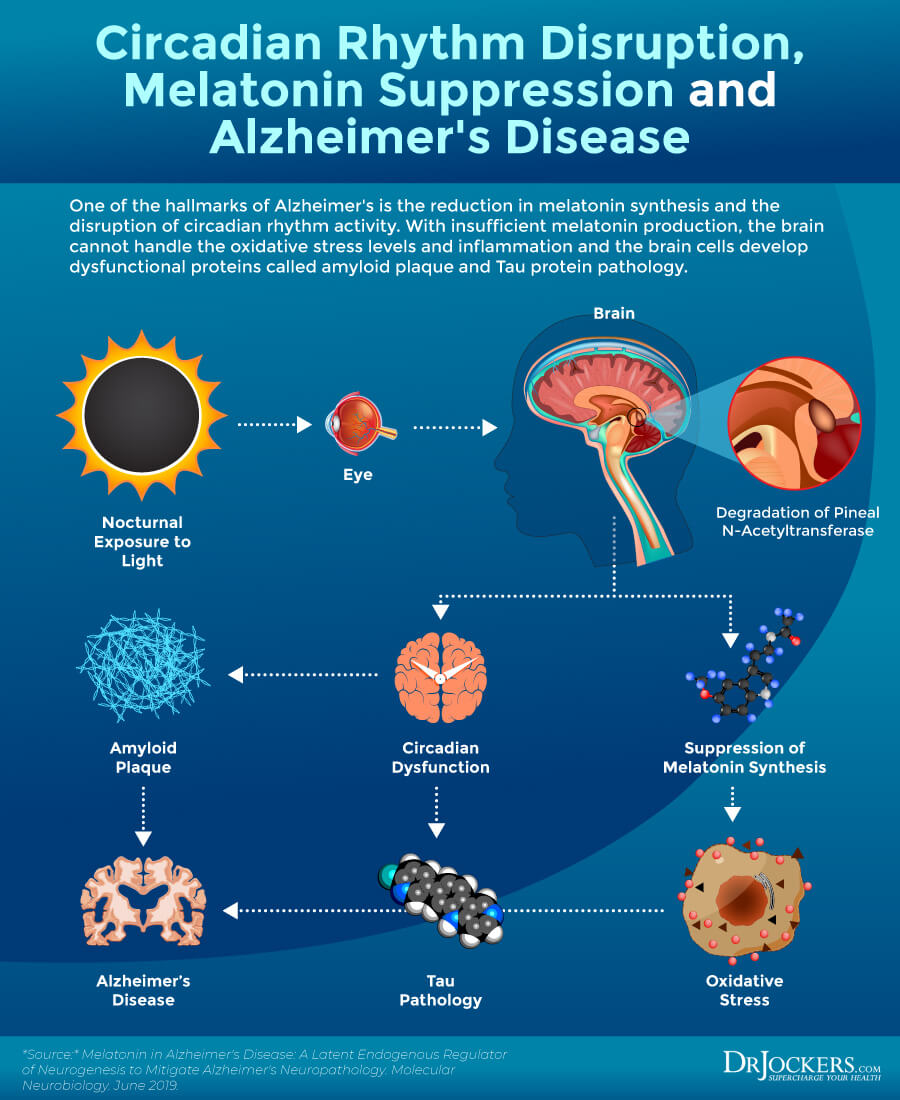
Reduces Pain Levels
Melatonin may also be beneficial if you are dealing with chronic pain. A 2019 study published in the Biological Research for Nursing has found that melatonin may help be beneficial for those with fibromyalgia, a condition characterized by widespread chronic pain (7). Researchers found that melatonin may help to lower cortisol levels, improve mood, reduce pain, and increase the quality of life in fibromyalgia.
A 2018 review published in Advances in Experimental Medicine and Biology has found that melatonin may help to improve chronic pain and pain related to sleep disorders (8). Researchers found that melatonin offers neuroprotective, sleep-supportive, and analgesic benefits. They found that due to these effects, melatonin may help to reduce chronic pain.
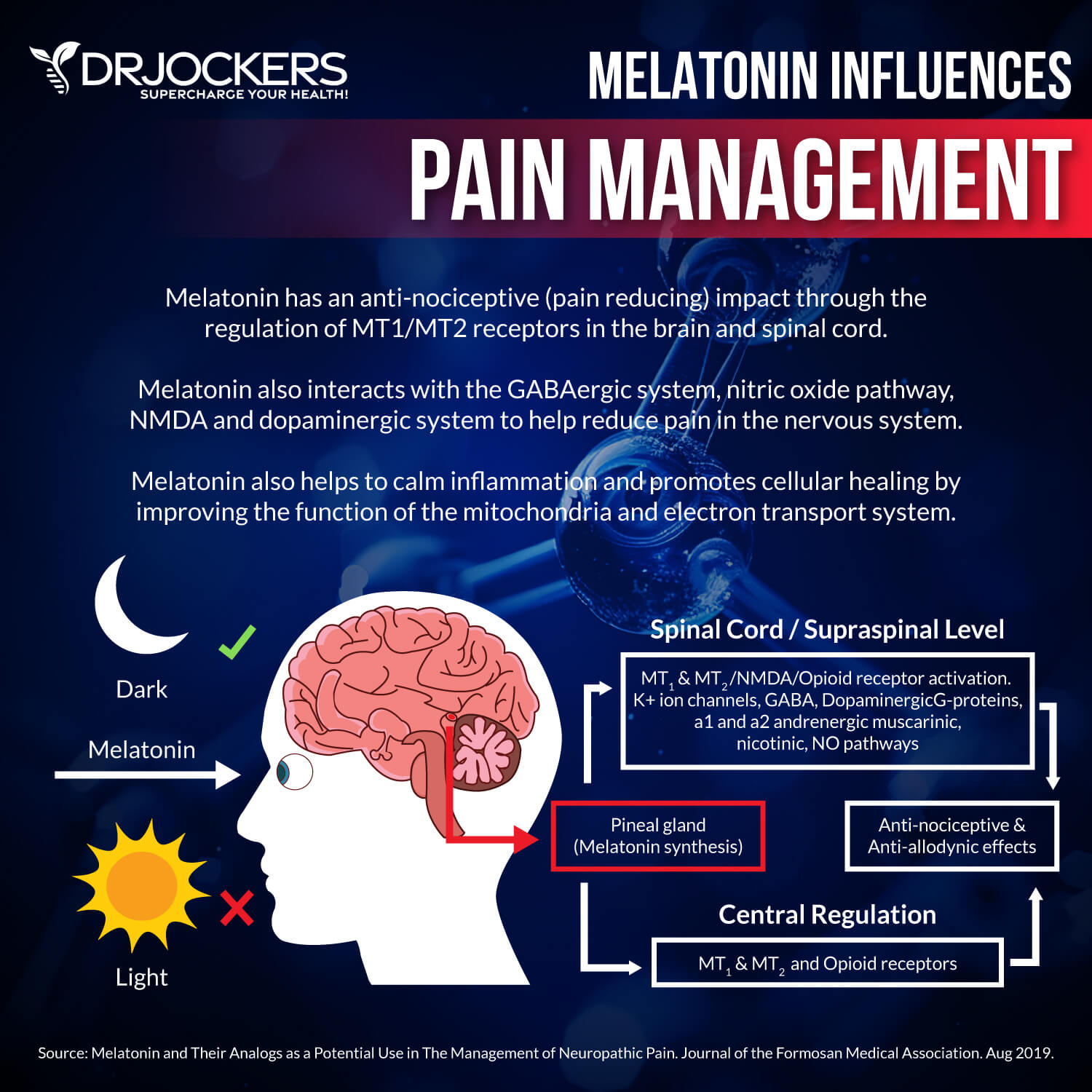
Organ and Blood Vessel Protection
Melatonin may also help to protect your organs and blood vessels. Melatonin offers antioxidant, anti-inflammatory, and anti-apoptotic effects. A 2018 review published in Life Sciences explained how melatonin might offer organ and blood vessel protection by affecting the NO/NOS system (9).
Nitric oxide (NO) is a free radical gas made by the nitric oxide synthase (NOS) family. NO works as a biological mediator and affects a variety of systems and functions in your body. The NO/NOS system affects various signaling functions in your body. According to the review, melatonin affects the NO/NOS regulation in a variety of organs and diseases. It can influence various cellular mechanisms and protect your organs and blood vessels.
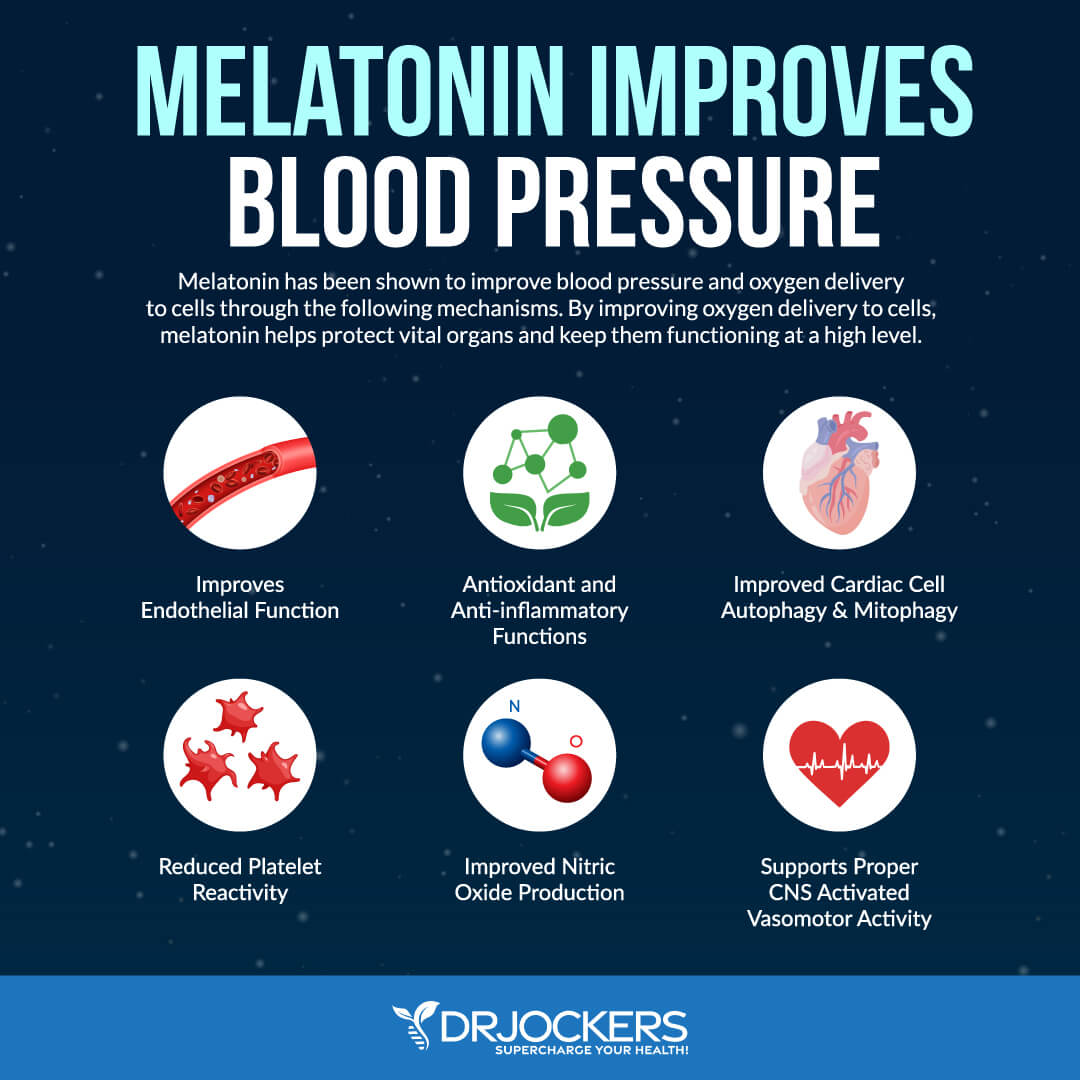
Supports Gut Health
Melatonin may also support your gut health by reducing gut inflammation and improving your gut microbiome. A 2018 study published in Biomedical Research International has found that melatonin may help to reduce oxidative stress, improve gut microbiome health, and improve overall gut health in ulcerative colitis in mice (10).
A 2022 study published in the Saudi Journal of Gastroenterology has also found that melatonin may help to reduce oxidative stress, decrease inflammation, reduce gut dysbiosis, and improve gut microbiome health (11). This study was also an animal study on sleep-deprived mice. Though both studies are animal studies, they indicate that looking into the gut-supporting benefits of melatonin can be a game-changing step.
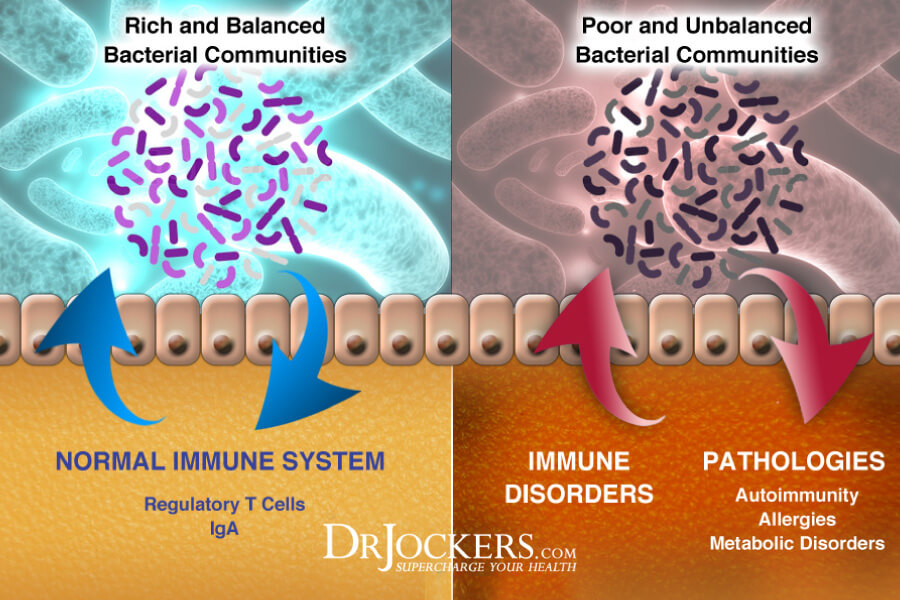
Improved Mood
I already discussed the brain-supportive effects of melatonin. It’s not surprising that melatonin may also support your mood and mental health.
According to a 2020 study published in the Journal of Pineal Research, melatonin may help to improve depression and rates of suicide (12). Researchers found that melatonin may help to reduce neuroinflammation, reduce LPS production and effects, improve autophagy through FOXO3a signaling, and reduce LPS-related depressive behaviors.
A 2019 study published in Frontiers in Immunology has also found that melatonin may help to reduce active depressive behaviors (13). They found that melatonin helps to reduce LPS and inflammatory cytokine production and suppresses the inflammasome activation through SIRT1/NrF2 pathway. As a result, it may reduce depressive behaviors and depression-related decreased mobility.
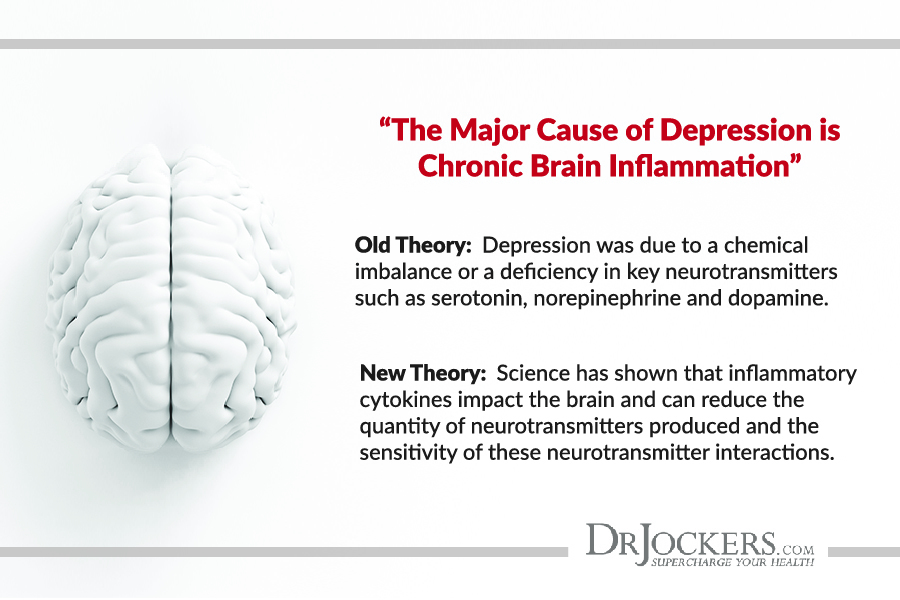
Testing Melatonin Levels
As you can see, melatonin is essential for many areas of your health. Too little melatonin can lead to a long list of symptoms and health issues. Though it’s less common, too much melatonin can also become a problem. Testing your melatonin levels is critical for us to understand potential underlying melatonin deficiencies behind your health issues and to optimize your levels.
Melatonin testing can be done through blood, urine, or saliva tests. I recommend DUTCH Complete Health Panel Test, which I use in my practice all the time. I recommend testing your melatonin level as 6-OH Melatonin Sulfate through the DUTCH Test. Ideal levels of melatonin are between 40 and 80 ng/mg.
Beyond melatonin, the DUTCH Test tests for many other aspects of your health. It is well-recognized for its ease of collection, coupled with comprehensive reporting that is not available from other laboratories. The DUTCH Adrenal provides free cortisol patterns that parallel saliva with the addition of metabolite measurements for an improved marker for total cortisol production.
The cortisol metabolites in the adrenal section are among the commonly highlighted markers appreciated by practitioners. They offer a much more complete view of the HPA axis than the traditional saliva tests, which only measure free cortisol. It tests your cortisol, cortisone, estradiol, estrone, estriol, progesterone, testosterone, DHEA, and melatonin levels. It is a great test for hypothyroid patterns, adrenal dysfunction, and hormonal dysfunction, especially in women.
The DUTCH Test is so easy and simple. It comes in an envelope with little strips to dip in your pee in the comfort of your home. You dip the strips, let them dry, and mail them off. The instructions are very clear. No need for a doctor’s office, and you will receive your results online.
Optimize Melatonin Levels
If you are dealing with symptoms of low melatonin levels, don’t worry. You can optimize your melatonin levels naturally. Here is what I recommend:
Blood Sugar-Stabilizing Nutrition Plan
Optimizing your health starts with your diet. I recommend a blood sugar-stabilizing nutrition plan. According to a 2020 review published in Diabetology and Metabolic Syndrome, there is a connection between melatonin and your blood sugar (14). Melatonin may help to improve your blood sugar and insulin levels.
Remove all inflammatory and blood sugar-disrupting foods, including refined sugar and carbs, refined oil, artificial ingredients, gluten, junk food, and overly processed foods. Keep your carbohydrate intake low. Any carbs should come from low glycemic index fruits and vegetables, not grains, sugary snacks, or junk food. Eat 30 to 50+ grams of protein and 20 to 40+ grams of fats per meal, depending on your body’s caloric needs. Eat 2 to 3 meals a day only.
Focus on high-quality, nutrient-dense, anti-inflammatory foods. Eat lots of colorful polyphenol-rich fruits and veggies, lots of greens, sprouts, herbs, spices, and fermented food, high-quality clean protein, such as grass-fed meats, pasture-raised poultry, and wild-caught fish, and healthy fats, including olives, extra-virgin olive oil, coconut oil, coconut milk, avocados, grass-fed butter and ghee, and seeds. Check out this article to learn more about some of the top blood sugar-stabilizing herbs you may also incorporate into your diet.
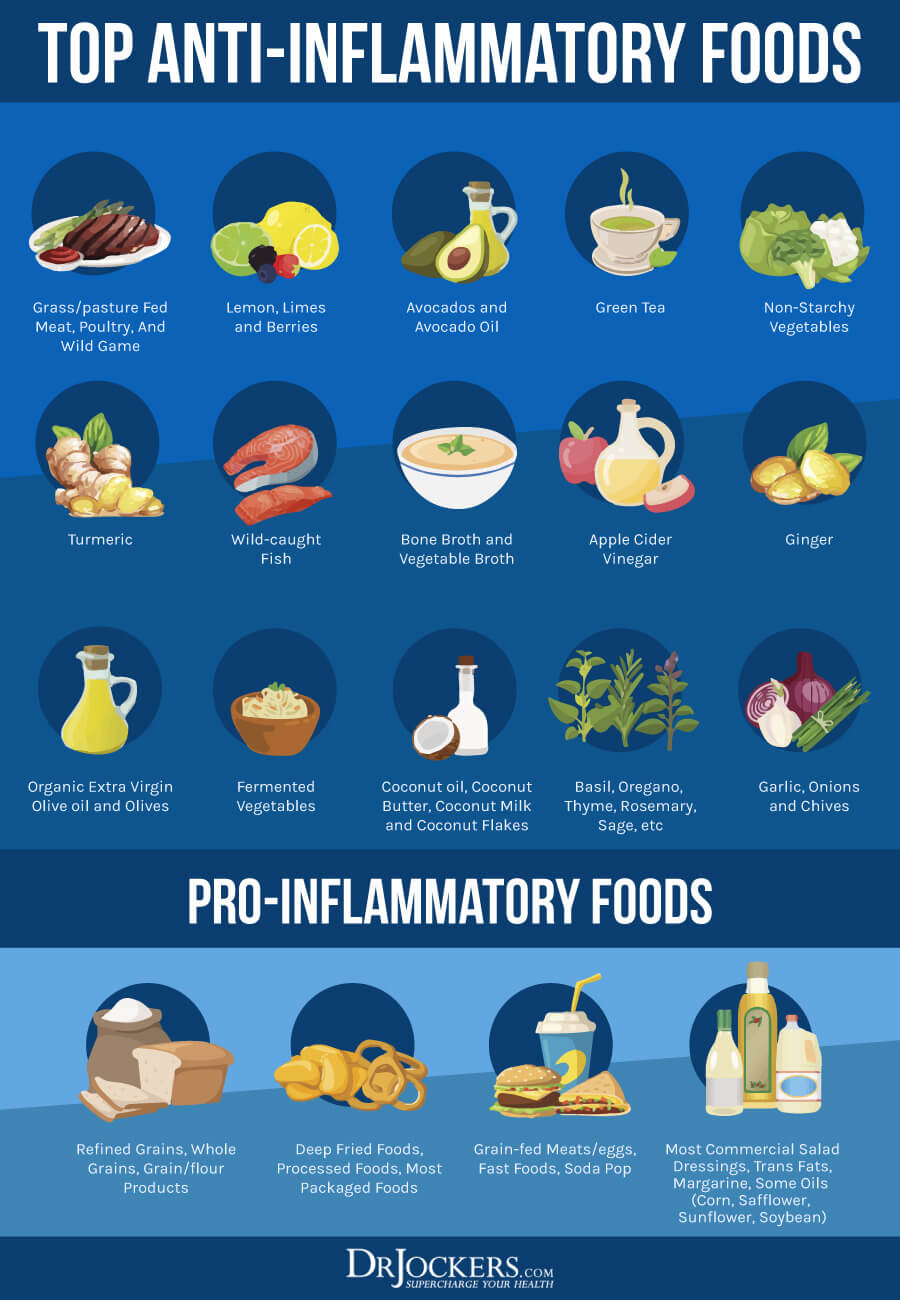
Early Time-Restricted Feeding
Another important dietary strategy is time-restricted feeding or intermittent fasting. It is a dietary strategy that shortens your daily eating window allowing a longer period of fasting (not eating) during the day within one day. The most popular intermittent fasting strategy is keeping a 16-hour fast and an 8-hour eating window.
For example, you may stop eating dinner at 6 pm and not eat until 10 am the next day. You have an 8-hour window between 10 am and 6 pm to eat your meals. You can even do a longer fasting window, keeping your eating window at 6, 4, or even at 1 hour. Some people, especially women, do better with a slightly shorter fasting window at 12 or 14 hours.
If you are new to fasting, I recommend that you start with a shorter window. Stop eating after dinner at 6 or 7 pm and don’t eat until breakfast the next day, 12 hours later, at 6 or 7 am. Gradually extend your window. Learn more about intermittent fasting here.
According to a 2017 study published in the American Journal of Clinical Nutrition, the timing of your meals also matters (15). Late-night eating can interrupt your metabolic health and increase body fat. It may also disrupt your circadian rhythms, which affects your melatonin levels.
To optimize your melatonin levels, I specifically recommend focusing on early time-restricted feeding. Stop eating at least 3 to 4 hours before sleeping. Eating before going to bed, especially heavy food, sugary food, caffeine, or alcohol, can delay sleeping, keep you up at night, and interrupt your sleep. Remember, melatonin activity is higher in the dark and when you are sleeping. If you are staying up all night because of late-night eating, it will reduce your melatonin production too.
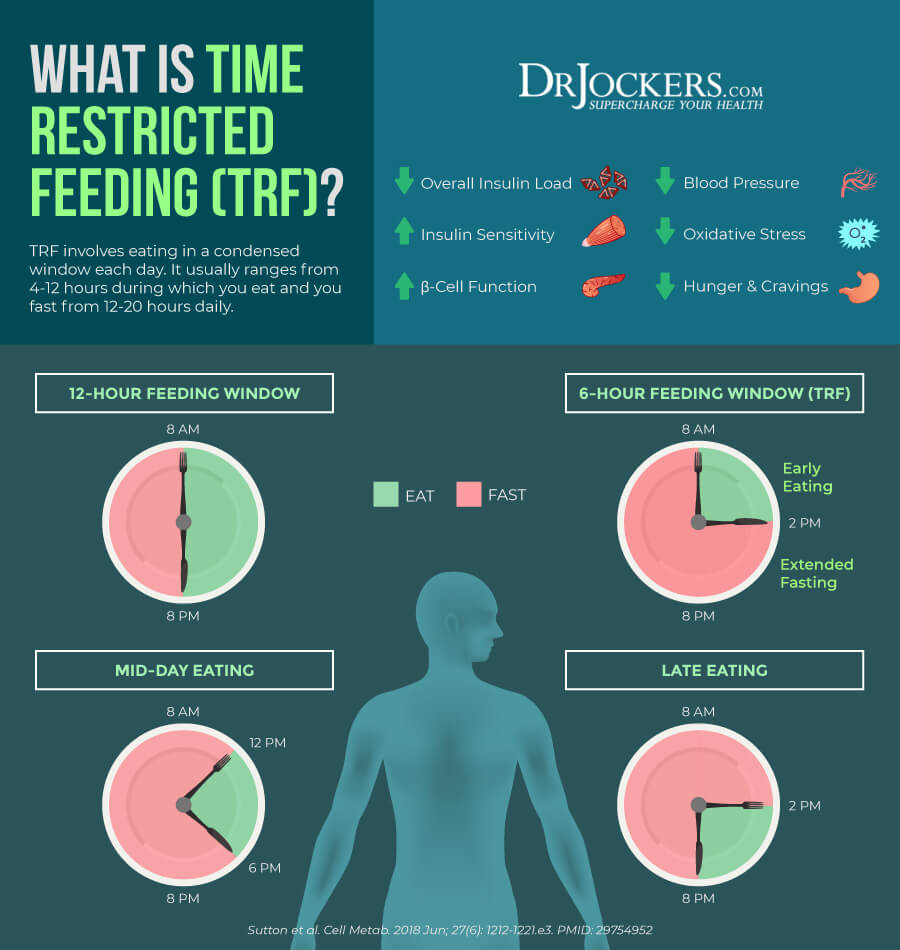
Regular Exercise
Exercise is critical for your health, but it’s also important for your melatonin levels. According to a 2020 study published in the International Journal of Sports and Exercise Medicine, moderate aerobic exercise may help to improve melatonin production at night and sleep in people who didn’t lead an active lifestyle before (16).
I recommend moving your body regularly. Start your day with some sort of easy movements, such as stretching out, yoga, or a short walk. If you have a sit-down job or sit a lot, get up regularly to stretch out and move around. Go for a stroll during lunch. Walk or bike instead of driving short distances. Take the stairs. Play outside with your kids or pets. Jump on your trampoline for 10 minutes or dance to your favorite song. Stay conscious about moving your body throughout the day.
Exercise at least 5 days a week for 20 to 30 minutes minimum. Incorporate a mix of cardiovascular and strength-training workouts. Great examples of cardio include biking, swimming, rebounding, and jogging. Great resistance and strength-training workouts include bodyweight workouts, weight training with free weights or weight machines, kettlebell workouts, using TRX suspension trainers, or working with resistance bands.
Pilates, yoga and barre workouts offer low-impact resistance training workouts that can improve balance and flexibility. High-intensity interval training (HIIT) and Tabata workouts offer a mix of cardio and strength training within a short workout. Learn more about how to build muscle effectively by reading this article.
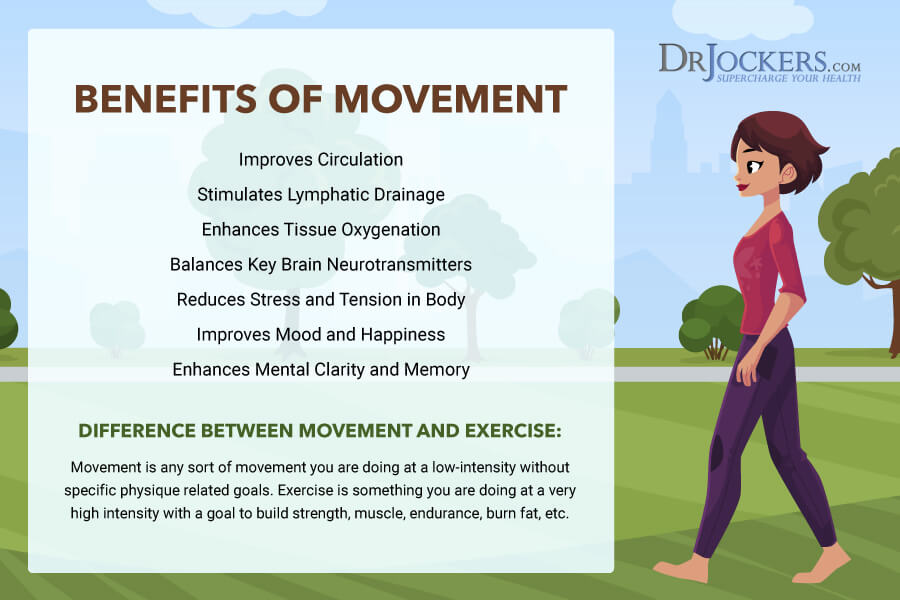
Morning Sun Exposure
As I’ve discussed earlier, melatonin levels are the highest at night and when it’s dark. They drop to the minimum during the day and with light exposure.
According to a 2008 review published in Environmental Health Perspective, sunlight exposure can improve vitamin D levels (learn more here) and reduce the risk of disease development (17). The review has also explained that melatonin production stops at daylight exposure in the morning, which is important for your body’s healthy circadian rhythms.
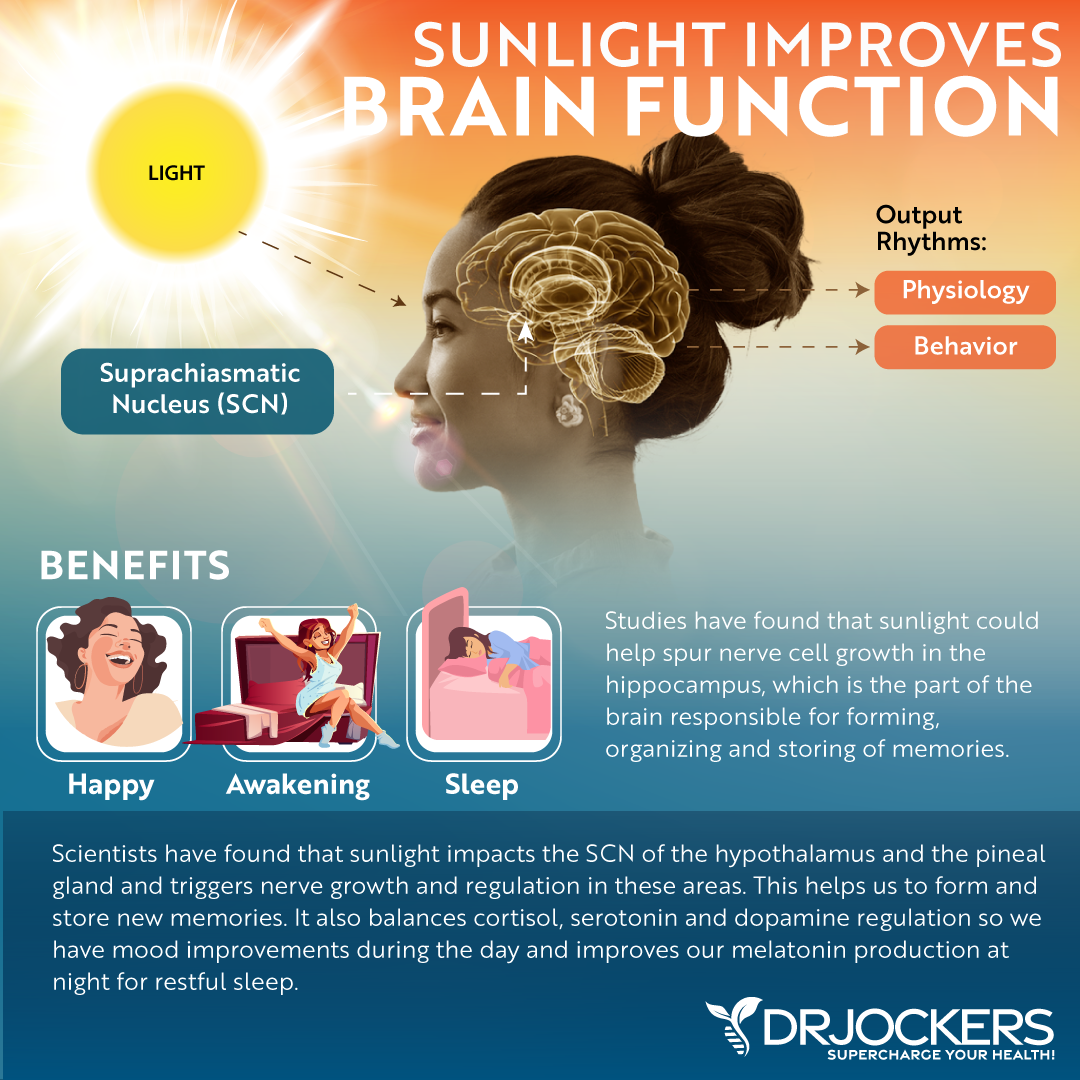
Supporting normal melatonin production in line with your circadian rhythms may reduce insomnia, seasonal affective disorder (SAD), mood issues, premenstrual syndrome, and skin problems (17). Going with nature’s rhythm, getting morning sun exposure, and supporting healthy night-time melatonin production may improve daytime energy, boost mood, and improve sleep.
Thus, I recommend morning sun exposure for 15 to 30 minutes each day. You may combine this with a walk, some other outdoor movement, grounding, meditation, breathwork, or journaling outdoors.
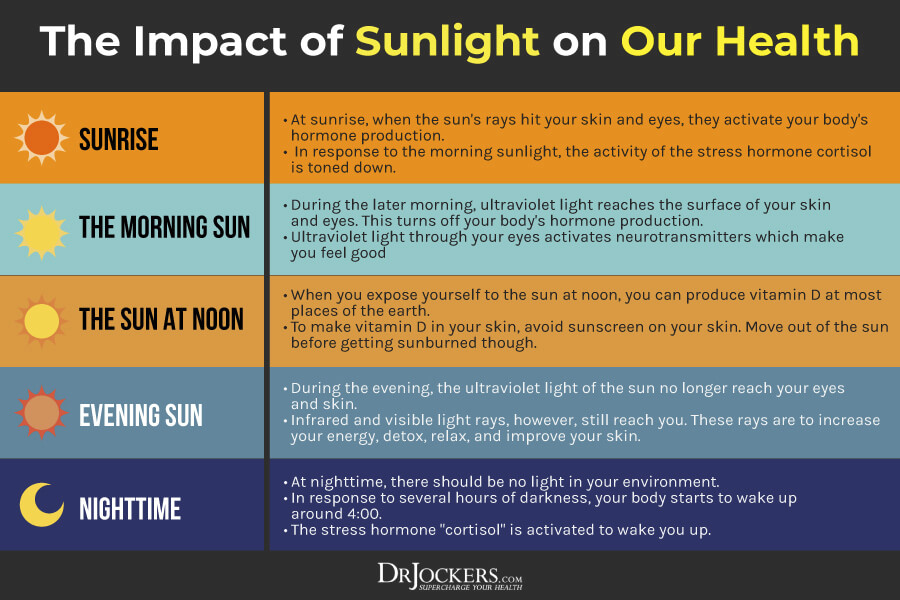
Optimize Sleep Quality
There is a boost in melatonin production when you sleep. And according to a 2014 review in Nutrition Journal, melatonin promotes healthy sleep (18). Optimizing your sleep habits can improve your sleep quality and melatonin levels.
I recommend going to bed and waking up around the same time every day to support your body’s circadian rhythm. Aim to sleep when it’s dark and wake up with the sun. Get 7 to 9 hours of sleep each night. Avoid food, alcohol, caffeine, electronics, and stress 3 to 4 hours before bedtime. Engage in relaxing offline activities, including reading fiction or poetry, journaling, board games, puzzles, crossword puzzles, healing baths, listening to music, meditation, or prayer.
Try some calming essential oils or a salt lamp to create a relaxing environment in your bedroom. Ideally, your walls, furniture, and bedding should have calming colors, like beige, white, green, blue, or light pink. Invest in a supportive bed, mattress, pillows, and bedding. Use blackout curtains and an eye mask to improve darkness and help sleep. You may learn more about how to optimize deep sleep by reading this article.

Avoid Blue Lights at Night
Blue light has short, high-energy wavelengths. You can be exposed to natural blue light from the sun and also artificial, high-energy blue light from artificial lights and electronics. Artificial blue light exposure can be generally harmful to your health. Exposure at night can interfere with sleep and melatonin production too.
According to a 2020 study published in the Indian Journal of Ophthalmology, 32.4 percent of the population uses blue light-emitting electronic tools and gadgets 9 to 11 hours a day, and another 15.5 percent for 12 to 14 hours (19). There are people who are on their devices even more. This can be detrimental to your health. According to a 2019 study published in Somnologie (Berlin), blue light can disrupt your circadian rhythm, sleep, and mood (20).
While you may not be able to avoid devices during the day for work, you can certainly limit your time on them at other times. Avoiding devices and blue lights at night is critical for your melatonin levels, sleep, and overall health. I recommend avoiding bright lights at night and using dim lights instead. Avoid electronics at night. If you must use your phone or computer, keep it short, and use blue light-blocking glasses or a blue light-blocking screen. Read this article to learn more about blue light-blocking glasses.
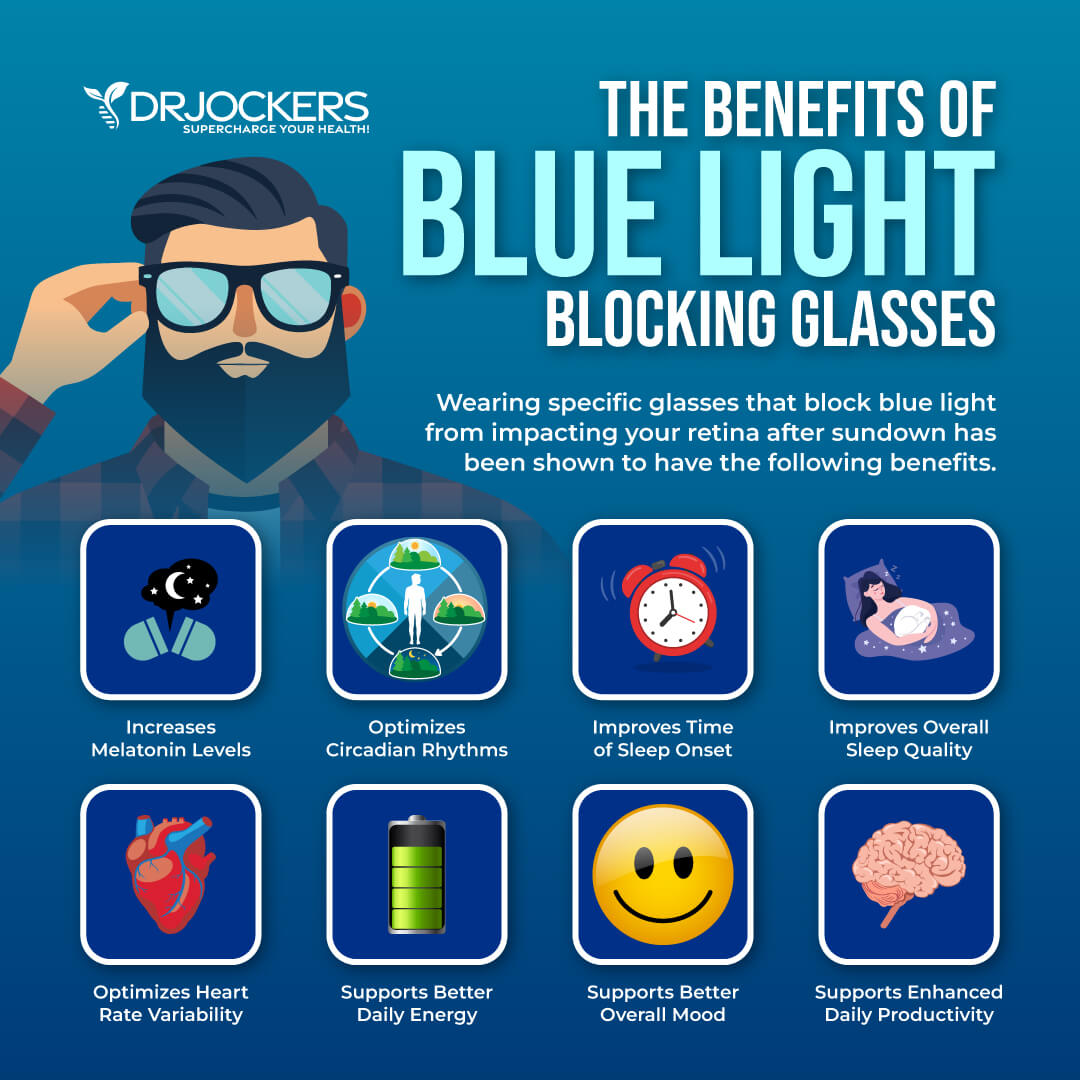
Red Light Therapy
Red light therapy is a powerful therapeutic technique and an alternative healing method. It uses red low-level wavelengths of light for a variety of therapeutic purposes, including wound healing, scars, and other skin issues, inflammation, pain, hair growth, and sleep quality, a low-level laser therapy. Unlike ultraviolet (UV) rays from the sun, red light therapy is safe and doesn’t burn your skin.
A 2007 study published in Medical Hypotheses has found that red light therapy may support melatonin production, which may play a role in its therapeutic effects (21). According to a 2012 study published in the Journal of Athletic Training, red light therapy may boost melatonin production, improve sleep, and aid muscle regeneration (22).
I highly recommend and personally use Mito Red Light Therapy Device. It is a third-party tested device with the highest power on the market. Most red-light therapy devices use only 2 watt or 3-watt LEDs, whereas Mito Red Light Therapy uses 5-watt LEDs for the best results. Use the coupon code DRJOCKERS at checkout to save 5% on the MitoRed product line.
You will experience higher irradiance for better results in less time. I love that it comes in different sizes for your convenience and that it’s affordable yet effective. To benefit from red light therapy, I recommend using it regularly, ideally once a day. The evening time may be a great time for supporting your sleep. You may learn more about red light therapy from this article.
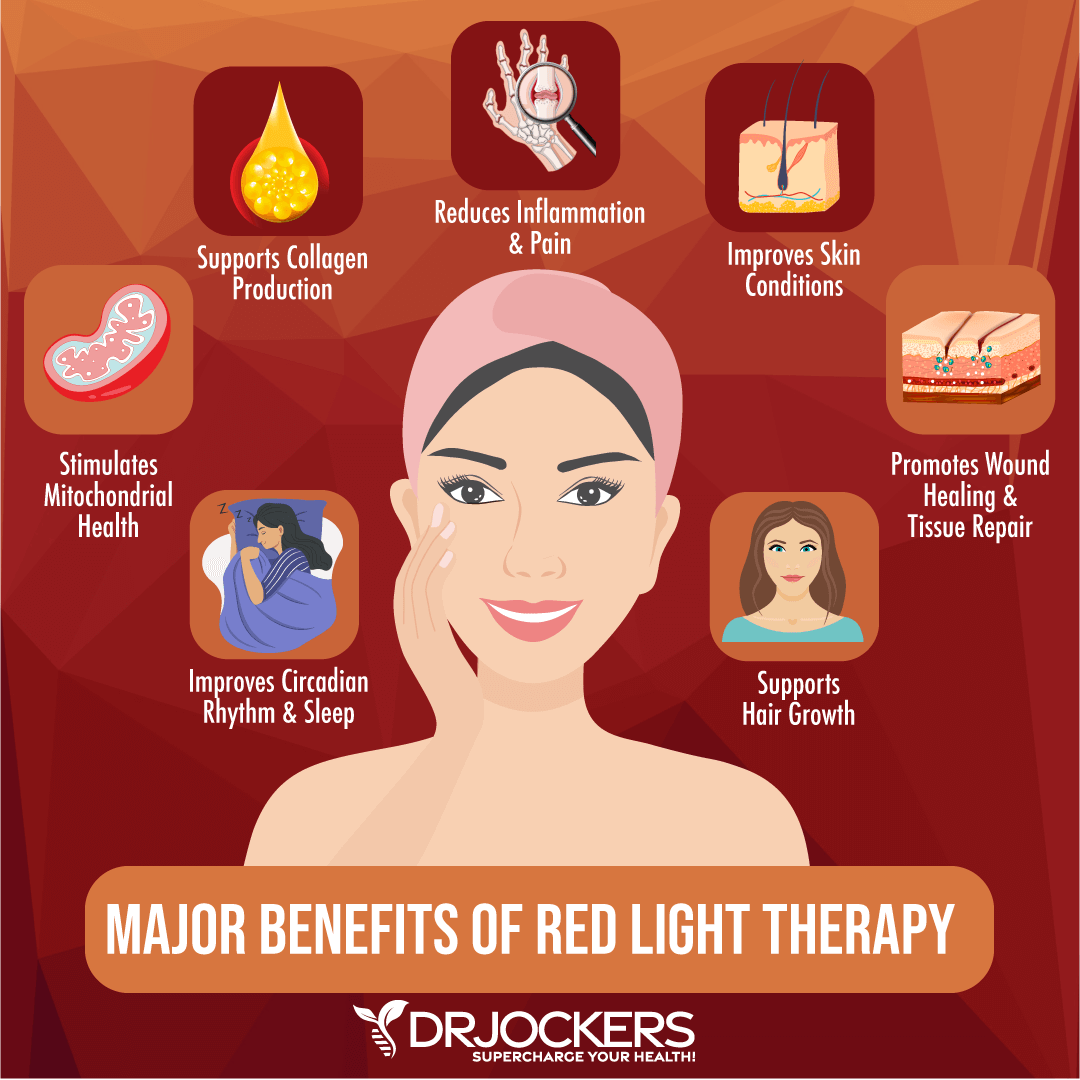
Strategic Caffeine Use
Strategic caffeine use may also help to improve your melatonin levels. According to a 2003 study published in the British Journal of Clinical Pharmacology, melatonin may help to reduce CYP1A2 gene activity (23). The CYP1A2 gene is a gene that affects glucose and energy metabolism.
According to a 2006 study published in Basic Clinical Pharmacology and Toxicology, caffeine may inhibit melatonin activity on the CYP1A2 gene (24). However, when taken 12 to 24 hours prior to taking melatonin, it will have no effect.
Thus, for those that are using caffeine, strategic use and timing are important. I recommend no caffeine after 2 pm. You may learn more about caffeine here.
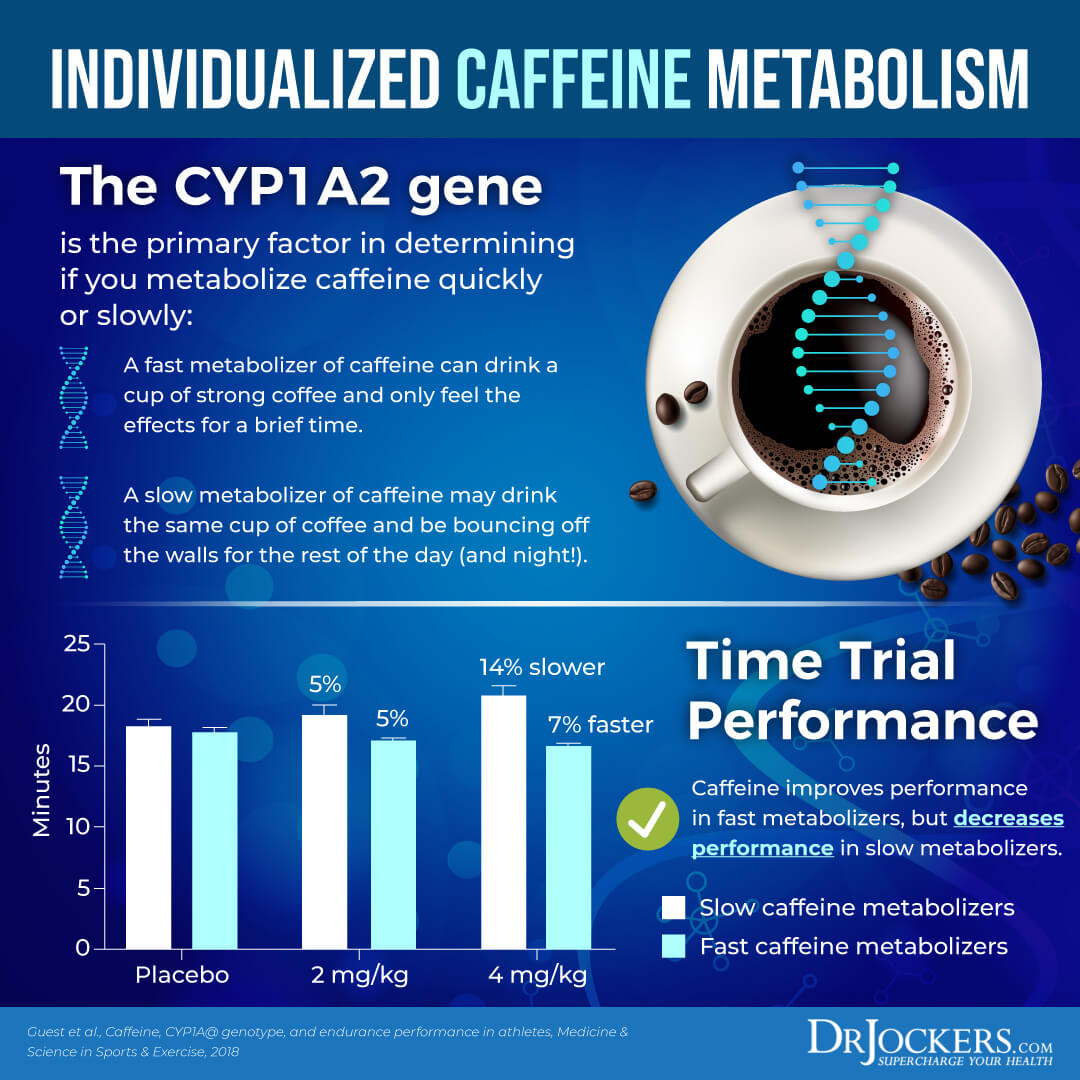
Use Magnesium
Using magnesium may also help to improve your melatonin levels. According to a 2012 study published in the Journal in Research of Medical Sciences, magnesium deficiency may be linked to reduced melatonin and primary insomnia in older people (25). A 2011 study published in the Journal of American Geriatric Society has found that using a combination of magnesium, melatonin, and zinc may help to reduce insomnia (25).
Eating magnesium-rich foods, such as greens, seeds, nuts, and avocados, may be beneficial. I also recommend supplementing with magnesium, especially in the evening, to improve your melatonin levels and support your sleep. You may learn more about how to improve your magnesium levels from this article.

Try Mag Sleep
To support your magnesium levels and sleep with magnesium, I recommend supplementing with Mag Sleep.
Mag Sleep is a unique blend of three highly bioavailable forms of magnesium alongside relaxation-supportive botanicals: Montmorency cherry powder to support the production of melatonin, sleep quality, and sleep duration, California poppy (Eschscholzia California) for its sedative and anxiolytic (calming) properties, and lavender (Lavandula angustifolia) to improve sleep and reduce anxiety. Mix 6 grams (approx. one scoop) in 8 ounces of water per day 30-60 minutes before bedtime or as directed by your healthcare practitioner.
Use Supplemental Melatonin
I recommend supplementing with melatonin. Take 5 to 10 mg one hour before bed and 5 to 10 mg right before bed for best results. For optimal results, choose a supplement that also contains vitamin B6. According to a 2006 study published in Georgian Medical News, using vitamin B6 may also help to improve the biosynthesis of melatonin (27).
I recommend Sleep Support. Sleep Support is a clinically effective form of low-dose melatonin with a biphasic delivery system to release melatonin quickly and steadily. Melatonin is produced naturally in the pineal gland of the brain in response to changes in light exposure; it helps maintain healthy sleep patterns as well as antioxidant and immune activities. Take one tablet with water 20 mins before bed. For an advanced dose, take 2 tablets with water 20 mins before bed or 1 tablet before bed and 1 tablet upon awakening in the middle of the night.
Final Thoughts
Melatonin is a natural hormone that affects physical, behavioral, and mental changes throughout the day. Melatonin helps to support your sleep. It affects your sleep-wake cycle, body temperature, cortisol levels, blood pressure, mood, brain health, immune function, and sexual function. It may reduce pain, inflammation, and the risk of diseases. I recommend following my strategies to optimize your melatonin levels and improve your health naturally.
Follow my tips to your glymphatic system flow to support your brain, immune, and overall health. If you want further help with your health, we offer long-distance functional health coaching programs. For further support with your health goals, just reach out and our fantastic coaches are here to support your journey.
Inflammation Crushing Ebundle
The Inflammation Crushing Ebundle is designed to help you improve your brain, liver, immune system and discover the healing strategies, foods and recipes to burn fat, reduce inflammation and Thrive in Life!
As a doctor of natural medicine, I have spent the past 20 years studying the best healing strategies and worked with hundreds of coaching clients, helping them overcome chronic health conditions and optimize their overall health.
In our Inflammation Crushing Ebundle, I have put together my very best strategies to reduce inflammation and optimize your healing potential. Take a look at what you will get inside these valuable guides below!


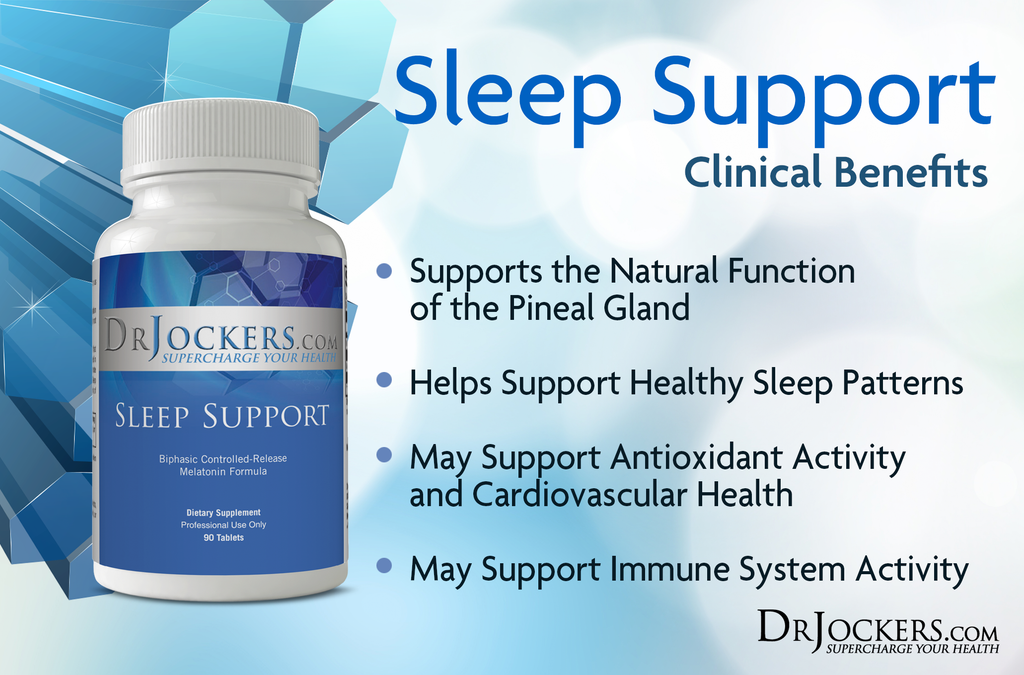




I’ve seen mixed thoughts on giving melatonin to children. I have a 5 and 7 year old. Any thoughts?
It may not be as needed for children as they usually go to bed at sunset and don’t have harmful blue light exposure after dark and produce plenty of endogenous melatonin. I typically like magnesium for children.
5-10mg…really? For years I have read that .625mg is the max one should take as any more disrupts sleep.
Many naturopaths recommend 0.3-0.5 mg as it is the amount the healthy human brain produces naturally.
No this is definitely not true. Many people are taking 5-10mg or more and having their highest quality sleep. Some people respond great to melatonin supplementation and others do not. You have to experiment and see how it works for you.
Great, thank you for clearing this up!
I’m a 77 year old very slim male, retired Marine in the top 1 % of physically fit folks my age. Do not smoke, drink a little wine before supper and I am happy, happy, happy. All of a sudden after being a good sleeper, (8-9 hours with one bathroom break and immediately fall asleep again). I’m in bed by 10 PM. Suddenly I’m up at 3 AM going on for weeks now. Great marriage, all the money I need and my humor is always jolly. Have no idea what brought this on!! Will your “SLEEP SUPPORT do anything??
Another thing, 10-30 mg of melatonin is not doing a thing!!!
You mention melatonin for cancer. those dosages are 180-240 mg , as 10 mg would not be sufficient.
Yes for sure, very high doses work very well for some individuals with cancer.
Hello Dr. Jockers,
Can I take melatonin whiles I’m taking dexamethasone (current dose is 0.75mg) for brain cancer, glioblastoma? Thank you
Unfortunately, we aren’t able to give specific medical advice or advice pertaining to medications.
Can taking a melatonin supplement reduce the amount of melatonin your body produces? I’m worried about dependency and/or long term effects of taking melatonin. We take low doses (1-2mg) and definitely see benefits. Thank you!
My son has idiopathic epilepsy and struggles to get to sleep. His neurologist recommended melatonin which has worked well for him but is causing vivid nightmares. He takes magnesium with his anti-seizure medication but that didn’t work on its own. Do you have any recommendations for a melatonin that does not cause nightmares? Have you treated any patients with seizure disorder? and what have your results been? His neurologist’s only solution is more medication. At 16 years old, I want more for him. I would love to take a natural approach to see if we can resolve these issues he’s having. Thank you!
On testing Melatonin levels Dr J …I’ve heard Dr Russell Reiter (the long time melatonin researcher) say to accurately test one’s melatonin levels it needs to be done at night and in the dark. He also says Melatonin has no known LD (Lethal Dose)… he himself has been taking like 80 mg’s a night for decades. One’s correct dosage could simply be based on how toxic they are, but then again it’s never as simple as we hope it should be. Your thoughts on all of the above Dr J … Thanks :).
PS … did you take presentation class in college?… because your articles are always so well done, visually impressive , informative , and easily digestible….Well done Sir
I have heard that magnesium powders can come from China and should be 3rd party tested for heavy metals. Is your product tested?